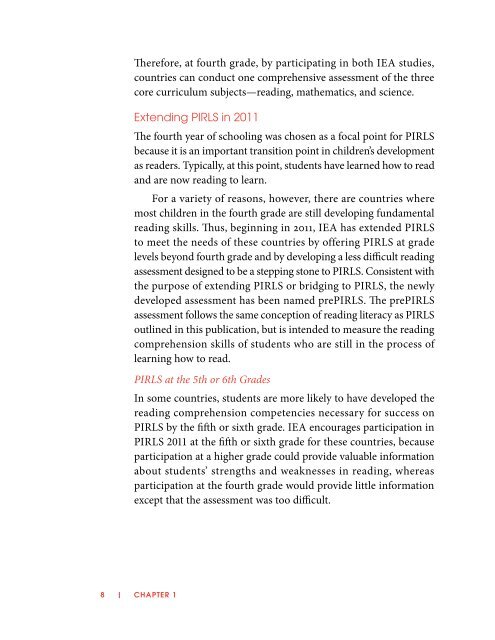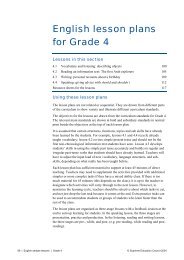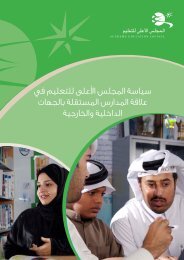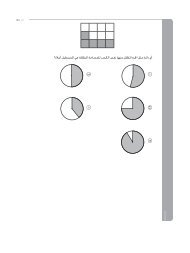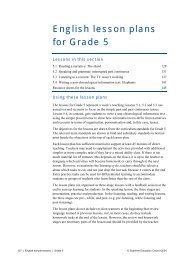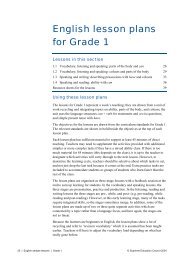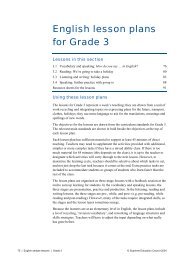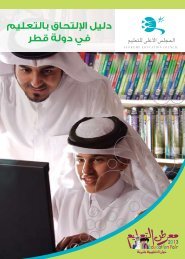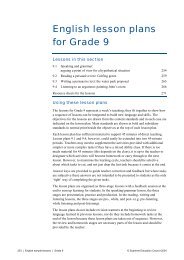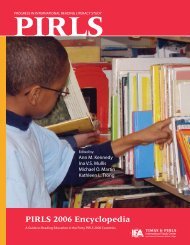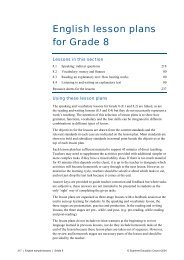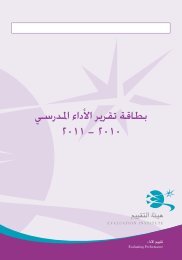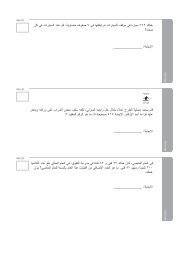PIRLS 2011 Assessment Framework - Proj AVI
PIRLS 2011 Assessment Framework - Proj AVI
PIRLS 2011 Assessment Framework - Proj AVI
- No tags were found...
You also want an ePaper? Increase the reach of your titles
YUMPU automatically turns print PDFs into web optimized ePapers that Google loves.
Therefore, at fourth grade, by participating in both IEA studies,countries can conduct one comprehensive assessment of the threecore curriculum subjects—reading, mathematics, and science.Extending <strong>PIRLS</strong> in <strong>2011</strong>The fourth year of schooling was chosen as a focal point for <strong>PIRLS</strong>because it is an important transition point in children’s developmentas readers. Typically, at this point, students have learned how to readand are now reading to learn.For a variety of reasons, however, there are countries wheremost children in the fourth grade are still developing fundamentalreading skills. Thus, beginning in <strong>2011</strong>, IEA has extended <strong>PIRLS</strong>to meet the needs of these countries by offering <strong>PIRLS</strong> at gradelevels beyond fourth grade and by developing a less difficult readingassessment designed to be a stepping stone to <strong>PIRLS</strong>. Consistent withthe purpose of extending <strong>PIRLS</strong> or bridging to <strong>PIRLS</strong>, the newlydeveloped assessment has been named pre<strong>PIRLS</strong>. The pre<strong>PIRLS</strong>assessment follows the same conception of reading literacy as <strong>PIRLS</strong>outlined in this publication, but is intended to measure the readingcomprehension skills of students who are still in the process oflearning how to read.<strong>PIRLS</strong> at the 5th or 6th GradesIn some countries, students are more likely to have developed thereading comprehension competencies necessary for success on<strong>PIRLS</strong> by the fifth or sixth grade. IEA encourages participation in<strong>PIRLS</strong> <strong>2011</strong> at the fifth or sixth grade for these countries, becauseparticipation at a higher grade could provide valuable informationabout students’ strengths and weaknesses in reading, whereasparticipation at the fourth grade would provide little informationexcept that the assessment was too difficult.8 | Chapter 1


